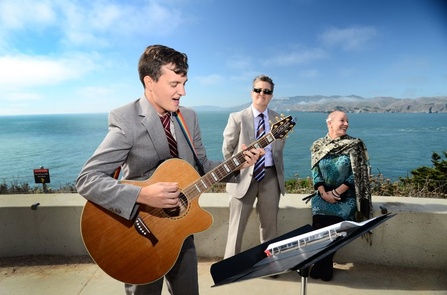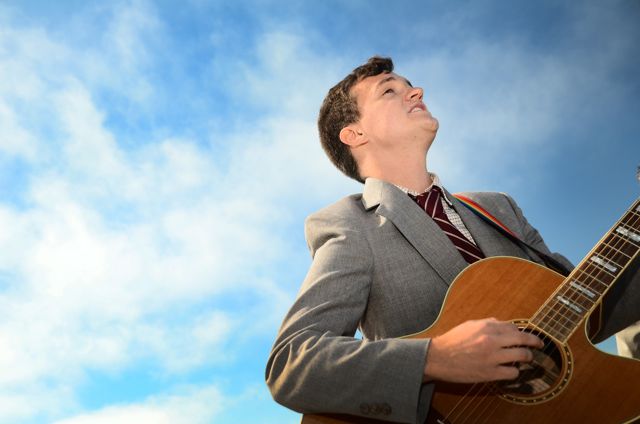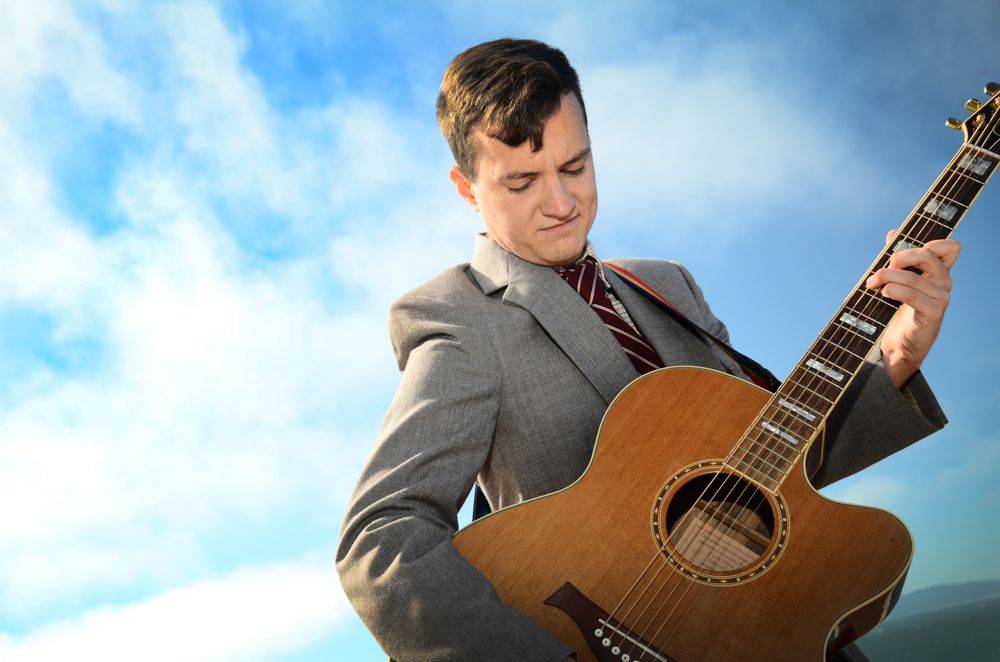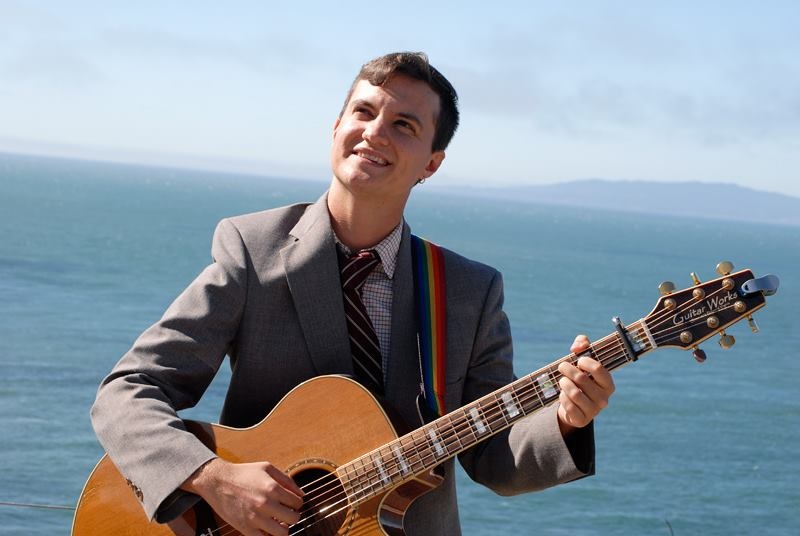
Wedding photos by Phyllis Christopher www.phyllischristopher.com
This past weekend I had the pleasure of playing two songs at the wedding of a man I met through teaching my singing classes for LGBTQ people and allies. I learned "Beloved One" by Ben Harper as a "wedding march" of sorts, and I adapted my song "I Found You" to work in a wedding setting. Here's the original version of the song from my birthday show a few weeks ago:
It was a beautiful wedding ceremony, and one of my favorite parts was that, in addition to the bride and groom saying "I do" to loving and supporting each other, the officiant asked all us gathered to affirm that we would support both of them individually, and as a couple. We all yelled "we do!" of course!
Here's some wonderful pictures captured by Phyllis Christopher, and the last one's by Wendy Goodfriend. Click the photos for bigger images.
Here's some wonderful pictures captured by Phyllis Christopher, and the last one's by Wendy Goodfriend. Click the photos for bigger images.
I have to say, the folks who take my singing classes are some of the sweetest people. I didn't realize when I first started offering singing classes that not only would I have the chance to lead big groups of queers in singing "9 to 5" and "Time After Time" in harmony, but I'd be fostering a space where queer and trans people from many different communities would have a chance to get to know one another in an intimate, creative, supportive setting. I'm so glad to have been able to create an LGBTQ space that is generally cross-generational, multiracial, includes people of mixed abilities, and is diverse in terms of class, gender and sexuality. As someone who has been most of the letters in "LGBTQ" at some point, and who believes that our communities are strongest when we recognize and honor each others' differences as well as the ways that we are the same, that's something that's very important to me.
It's always a joy to watch people who have never before sung in front of others open up and sing out loud at the final recital for my classes. There was the poet who was newly exploring being femme, putting on eye makeup on their own for the first time in the bathroom before the recital to be Hedwig for her song from Hedwig and the Angry Inch. The man who sang a song to his new husband that went "before I met you I was a fairy princess." The woman who sang a Hawai'ian chant given to her by a Hawai'ian elder to sing at a gathering of Pacific Islanders, even though she had never sung for others before. The woman who played ukelele and sang a vengeful song in the character of a video game. Not to mention the transmasculine genderqueer person who reached up for the high notes in "Hallelujah" -- notes they thought they'd never reach again after taking testosterone.
I've been consistently impressed at the way each person in my classes supports the others, clapping for a song well sung, holding space when someone cries because the song they're singing moves them to tears, encouraging each other to take risks and take up space and share how they shine. Throughout the eight weeks of my classes, I ask my students to pair up and sing for each other, giving feedback about what the other person is doing well, and where they have room for growth. I believe that learning to listen to another person sing and give constructive feedback helps enrich one's own singing all the more.
I'd been teaching singing classes for about a year when I first came across Nomy Lamm's wonderful essay "Singing as Social Justice" about her own experience with singing, and the singing workshops she teaches. Nomy is a musician, a writer, a voice teacher, a performance artist, a queer femme disability & fat activist, and many other things! I was lucky enough to get to teach a singing workshop with her for Community United Against Violence's Safetyfest. What she says in this piece really resonates with me:
Most of us are afraid to use our authentic voices; we don't even know what that might mean. So we stay silent. Or we push. We sing in one specific constructed way because we think that's the only way to sound "good." Whether you were taught to believe that you are a good or bad singer, it's a judgment that can be built up into an identity, a system you can use against yourself and others.
But there are other possibilities. The voice, and the sensitivities derived from practicing and using it, can be used as a gage or an energizer in a space. It can be a source of pure expression, a way to connect, and a way to observe the space you're taking up. When we're stuck in our oppression we often feel voiceless, the throat closes up, we can't find a way to say what we need to say, words come out as a whisper. When we are acting out of privilege or entitlement we don't realize, energetically, what kind of impact we are having on the space we occupy, whose voices we are drowning out. The authentic voice can be used as a tool for social justice, a way to feel ourselves and hone our attunement to each other, to connect outside of social or institutional hierarchies.
I think that's a beautiful vision, and one that I've been able to witness happening firsthand in my classes. I'm teaching two classes coming up in October and November in Berkeley, if you'd like to join us.
And by the way, if you haven't witnessed Nomy's amazing music, writing and art, I encourage you to check her out! I'll leave you with this wonderful video of her song "I Love Myself, I Love the World."
It's always a joy to watch people who have never before sung in front of others open up and sing out loud at the final recital for my classes. There was the poet who was newly exploring being femme, putting on eye makeup on their own for the first time in the bathroom before the recital to be Hedwig for her song from Hedwig and the Angry Inch. The man who sang a song to his new husband that went "before I met you I was a fairy princess." The woman who sang a Hawai'ian chant given to her by a Hawai'ian elder to sing at a gathering of Pacific Islanders, even though she had never sung for others before. The woman who played ukelele and sang a vengeful song in the character of a video game. Not to mention the transmasculine genderqueer person who reached up for the high notes in "Hallelujah" -- notes they thought they'd never reach again after taking testosterone.
I've been consistently impressed at the way each person in my classes supports the others, clapping for a song well sung, holding space when someone cries because the song they're singing moves them to tears, encouraging each other to take risks and take up space and share how they shine. Throughout the eight weeks of my classes, I ask my students to pair up and sing for each other, giving feedback about what the other person is doing well, and where they have room for growth. I believe that learning to listen to another person sing and give constructive feedback helps enrich one's own singing all the more.
I'd been teaching singing classes for about a year when I first came across Nomy Lamm's wonderful essay "Singing as Social Justice" about her own experience with singing, and the singing workshops she teaches. Nomy is a musician, a writer, a voice teacher, a performance artist, a queer femme disability & fat activist, and many other things! I was lucky enough to get to teach a singing workshop with her for Community United Against Violence's Safetyfest. What she says in this piece really resonates with me:
Most of us are afraid to use our authentic voices; we don't even know what that might mean. So we stay silent. Or we push. We sing in one specific constructed way because we think that's the only way to sound "good." Whether you were taught to believe that you are a good or bad singer, it's a judgment that can be built up into an identity, a system you can use against yourself and others.
But there are other possibilities. The voice, and the sensitivities derived from practicing and using it, can be used as a gage or an energizer in a space. It can be a source of pure expression, a way to connect, and a way to observe the space you're taking up. When we're stuck in our oppression we often feel voiceless, the throat closes up, we can't find a way to say what we need to say, words come out as a whisper. When we are acting out of privilege or entitlement we don't realize, energetically, what kind of impact we are having on the space we occupy, whose voices we are drowning out. The authentic voice can be used as a tool for social justice, a way to feel ourselves and hone our attunement to each other, to connect outside of social or institutional hierarchies.
I think that's a beautiful vision, and one that I've been able to witness happening firsthand in my classes. I'm teaching two classes coming up in October and November in Berkeley, if you'd like to join us.
And by the way, if you haven't witnessed Nomy's amazing music, writing and art, I encourage you to check her out! I'll leave you with this wonderful video of her song "I Love Myself, I Love the World."



 RSS Feed
RSS Feed